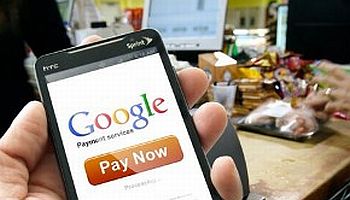Isis Grows Into Serious NFC Payment Contender

Isis has signed up all four major credit card providers to challenge Google on NFC payment technology
Three of the largest wireless carriers in the United States have joined Google, PayPal and others at the table for mobile payments based on near field communications (NFC) wireless technology.
Isis, a joint venture comprised of AT&T and Verizon Wireless, scored a major coup by becoming the first mobile payment provider to ink all four major credit card providers Visa, MasterCard, Discover and American Express for support in the United States.
Smartphones
That means the group will have a larger footprint among retailers, where consumers will be able to purchase goods by tapping NFC-enabled smartphones against terminals to pay for goods. Isis will also let customers redeem coupons and store merchant loyalty cards on their phones.
“By working with the nation’s payment networks – Visa, MasterCard, Discover and American Express – we significantly advance the vision of an open and secure platform that provides banks and merchants with a new and highly relevant way to connect with consumers,” said Isis chief executive Michael Abbott in a statement on 19 July.
Isis will test its payment system in Salt Lake City, Utah and Austin, Texas, in the first half of 2012 with support from all four payment networks.
Winning the hearts and hands of the big four – Visa, MasterCard, American Express and Discover – could be a blow to more limited mobile payment efforts from Google and PayPal.
Google in May unveiled its Google Wallet mobile payment play with the notion of enabling secure payments between NFC smartphones and wireless terminals.
Testing phase
The company plans to test this product in New York City and San Francisco this summer with MasterCard and about two dozen retailers. Currently, only Sprint’s Samsung Nexus S 4G smartphones will support Google Wallet, a limitation Google will have to break free from to see its plans reach fruition.
By joining Google Wallet and Isis, MasterCard is the only major credit card issuer to double dip from the two major mobile payment wells. Who will be next is unclear; the other credit card providers haven’t said what they feel about Google Wallet.
Meanwhile, PayPal recently showed how users can tap two NFC-enabled Samsung Nexus S phones together to let users exchange money, a solution the company promised will be released later this summer. Sprint, the only major US carrier not involved with Isis (but is a key player in Google Wallet) agreed to support American Express’ Serve mobile wallet application.
Much is at stake in this game made increasingly complex with fragmentation among many players. Gartner said worldwide mobile payment users will surpass 141.1 million (£86 million) in 2011, with mobile payment volume expected to top $86.1 billion around the globe.
However, the growth is slower than expected and the researcher believes mass market adoption of NFC is at least four years away.
“In developed markets, companies are trumpeting the prospects of Near Field Communication without realising the complexity of the service model,” Gartner analyst Sandy Shen said. “The biggest hurdle is the need to change user behavior by convincing consumers to pay with mobile phones instead of cash and cards.”
